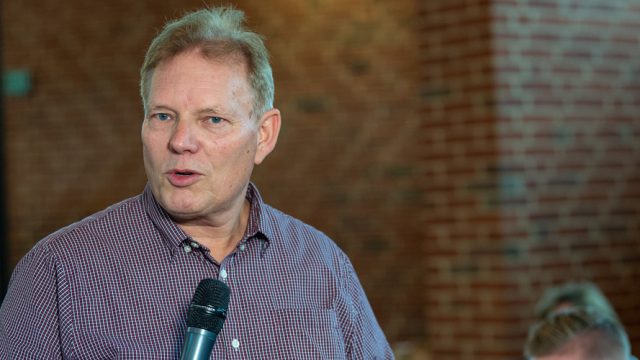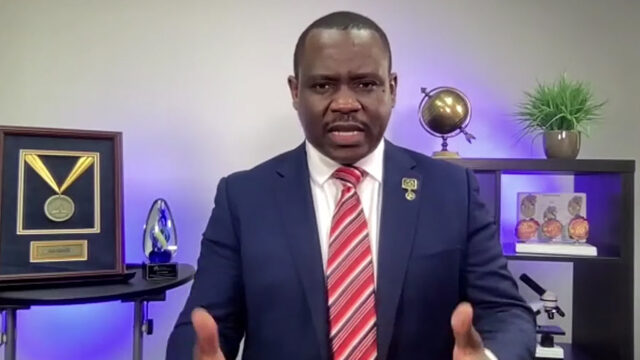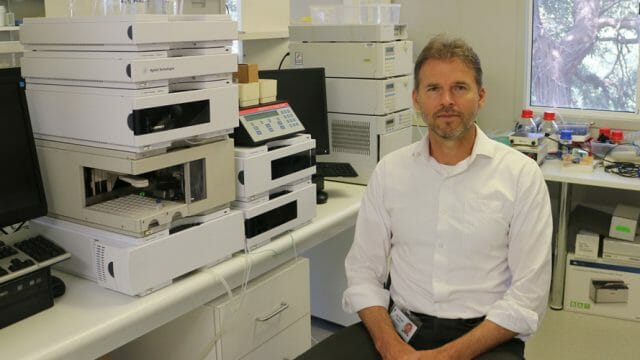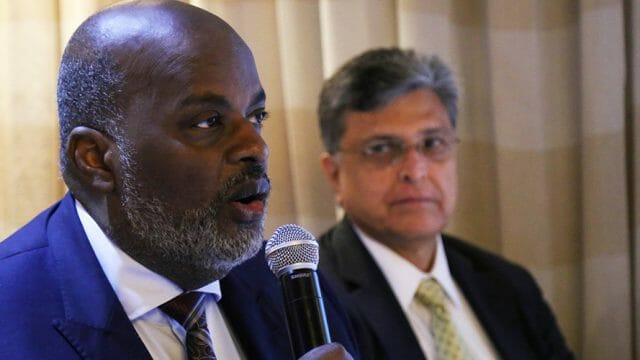Wilson invites regional leaders to work in unity and togetherness.
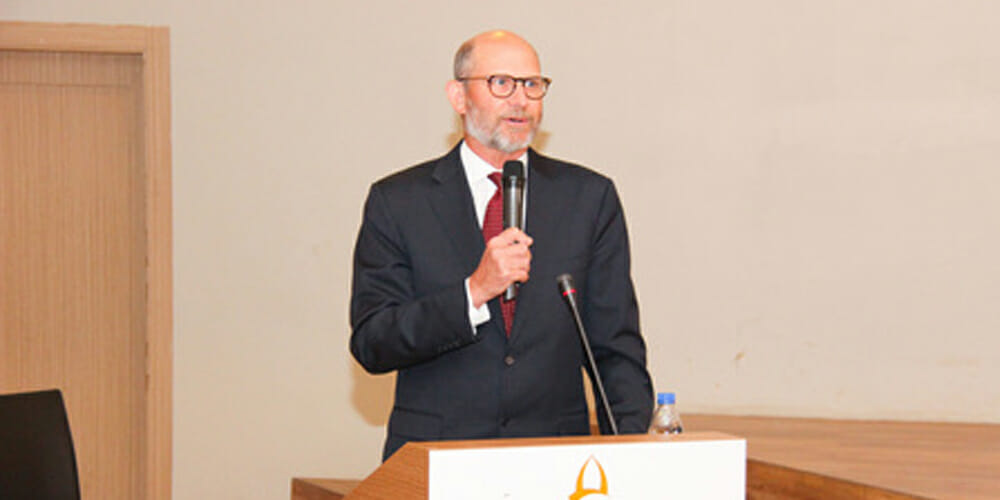
Seventh-day Adventist Church president Ted N. C. Wilson led the world church administration team in leadership training on July 3-4, 2018, in Grand-Bassam, Côte d’Ivoire. The seminar brought together the West-Central Africa Division (WAD) department directors, as well as the union, conference, and mission leaders for two days of presentations and discussions.
Wilson arrived in Côte d’Ivoire on July 1, together with world church treasurer Juan R. Prestol-Puesán and executive secretary G. T. Ng. WAD leaders, led by WAD president Elie Weick-Dido, officially welcomed them to the region.
Later that week, as part of the opening ceremony of the leadership seminar, and in the presence of the local authorities, the representative of the King of Mossou, Manan Moses B., made Wilson a dignitary of the kingdom.
The Training
In the face of certain financial and organizational challenges to the church across the WAD region, Wilson pledged his ongoing support and assistance to the division and the process. “I will personally follow up with the division administrators to make sure that local and union plans for resolving the accounts receivable challenges have been received by the division and are well coordinated,” he said.
Wilson also held a press conference, during which he shared some of the issues discussed with the regional Adventist leaders. He prayed for the media representatives who attended the press conference and their respective families.
Prestol-Puesán shared a new way of managing the church’s business. “A consecrated life is essential in the financial management of the church,” he said. Prestol-Puesán also listed some of the challenges affecting the smooth running of the church’s finances, issues such as “cybercrime, devaluation, lack of discipline, a lack of compliance to the auditors’ recommendations, and the lack of communication between entities, among others.”
“These challenges must be addressed,” said Prestol-Puesán.
Prestol-Puesán suggested several actions that church leaders can take to fight worrying trends. “Make plans, be disciplined, avoid distractions,” he advised. “Also, be humble, have a life of sincere prayer, and be transparent and honest.”
Former world church executive secretary Matthew Bediako, now retired, also attended the training. In addressing leaders young and old, Bediako shared his experience during the decades he served the church. He also called regional leaders to be accountable. “I encourage you to be faithful,” he said.
Training Assessment
According to Weick-Dido, the leadership meeting—the first of its kind in that division—should be a turning point across the territory. “We thank God for this meeting, because the more we sit and talk, the closer we get to each other, [and the better] we share and encourage each other,” he said. “Nobody can tackle this task alone, as we need cohesion among the leaders.”
The training ended with a Lord’s Supper ceremony, giving the attendees the opportunity to start with a renewed vision to accomplish God’s work.
Weick-Dido said the training should be used as an opportunity to start anew. “I invite you to ‘recycle,’ and start again,” he told leaders. “We expect this training to mark a new beginning across our region.”


